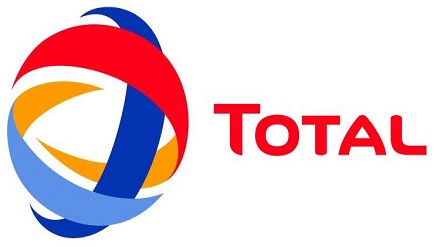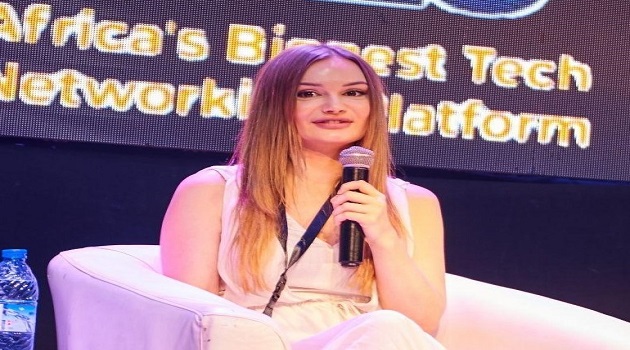General News
Total Resumes $2.5B Nigerian Deepwater Oil Field Sale

France’s Total SA, Europe’s second largest oil company, has put one of its offshore Nigerian oil fields up for sale again, the company said, after a 2012 deal with Sinopec Corp failed.
Total has hired BNP Paribas to find buyers for its Usan deepwater oil field located in the Nigeria Oil Prospecting Lease (OML) 138, which could be worth about $2.5 billion, according to sources familiar with the matter.
“We have selected an advisor to pursue the sale process of Usan,” a spokeswoman for Total said.
BNP Paribas declined to comment.
Usan is not expected to be an easy sale for Total because deepwater exploration requires significant investment and the new owner’s returns could be limited if Nigeria rises taxes on foreign investor profits as part of a long expected sector reform called the Petroleum Industry Bill (PIB).
Before deciding to sell the asset, which is about 100 km off the coast, Total was planning to drill several horizontal deepwater wells and build a deep offshore drilling rig.
“Anything in Nigeria is a tough sell,” said a London-based sector banker. “And anything with capex is even tougher these days. Very few players would be willing to acquire assets that have big investment commitments attached.”
Total said in November 2012 it had sold its 20 percent interest in the field to China’s Sinopec for about $2.5 billion in cash. It is not known why the sale failed.
The Nigerian National Petroleum Corporation (NNPC) is the OML 138 concession holder. Other partners include Chevron, ExxonMobil and Nexen, which is owned by Chinese state company CNOOC Ltd.
Total is working on several asset disposals to meet a $10 billion 2015 cash flow generation target. The French group is seeking to raise about $2.5 billion through the sale of its Super Glu maker Bostik, Reuters reported.
A deal for the Usan field may have to involve a local company because Nigeria, Africa’s top oil producer, is renewing efforts to recoup the benefits from its oil and gas sector.
But few Nigerian players would have the money and ability to complete the necessary drilling and building works, several sector bankers said.
This means Total’s hopes may lie again in the hands of Asian buyers like China’s CNOOC, which already has an interest in the USAN field, or India’s ONGC and Indian Oil.
International oil & gas majors are not expected to show interest because most of them are under pressure from shareholders to cut capital expenditure and improve dividends. Most are seeking to leave Nigeria instead.
Earlier this year, ConocoPhillips sold its Nigerian operations to Nigerian oil company Oando for $1.5 billion.
Chevron is also in the process of selling assets in Nigeria and Shell recently sold off four oil fields in the West African country.
Taleveras and Transcorp are among the best placed Nigerian potential buyers because they have the strongest financial firepower, said one of the sources.
A sector banker said state-backed NNPC could also be interested though it already has a number of commitments with foreign investors, Oando is digesting the ConocoPhillips deal and Seplat is focused on Chevron’s assets.
“(Total) needs a couple of local players with deep pockets. The international banks aren’t showing as much interest as they were, and the local banks no longer have capacity to raise that kind of debt,” said a local industry source.
Commodity traders and miners such as Glencore or Mercuria could also be interested, in theory, as they have been actively hunting for oil & gas assets to diversify from volatile mining operations, said several sector bankers.
But trading houses may not have the required expertise to operate deepwater assets, said one of the bankers.
Glencore and Mercuria were among the short-listed bidders for Shell’s Nigerian energy assets worth about $3 billion, sources previously told Reuters.
RBC Capital Markets said in a report this week that Total was likely to miss production and cash flow targets for next year as it grapples with project disruptions. Total will update the market at a mid-year outlook investor’s day on September 22.
General News
NIPOST Threatens Courier, Logistics Service Providers

Nigerian Postal Services (NIPOST) has urged courier or logistics service providers to register with the service or face the wrath of the law.

Dr Chris Ashiedu, state postal manager, Enugu State, made the call while speaking on Tuesday at the ongoing 36th Enugu International Trade Fair.
The 10-day Fair, which kicked off on April 4, is themed: “Developing Nigeria Industrial Sector/SMEs for Economic Advancement and Global Recognition”.
Ashiedu said that any company or venture who failed to register as well as their workers would also be liable to legal sanction of fines, imprisonment or both.
He said that NIPOST had so far registered 29 courier/logistic service providing companies or ventures in Enugu State, while hunting for others operating under hiding.
According to him, we are succeeding in pushing to get them notwithstanding that they are dodging NIPOST officials but we are determined to get every courier/logistic service provider in Enugu State under our regulatory control and guidance.
Ashiedu said that the Agency was already developing a technological App to track those operating in the secret and get their locations.
He said: “NIPOST is a Federal Government agency constitutionally charged with the regulation and licensing of all courier and logistics services in Nigeria.
“We clamped down on all unregistered courier and logistics service companies or providers last month in Enugu, and we will keep on chasing them until they do what the law demands.
“We will also compel them to do their annual re-registration.
“It is made easier for them since NIPOST has categorised courier/logistics services into international, national, regional and state and bulk of the couriers/logistics fall into state category to pay very less for registration and annual re-registration.”
The manager explained that any movement of item, be it food or even fruit on a motorised equipment (vehicle or motorcycle) from one location to another in terms of delivering is doing courier service.
General News
Sofia Zab, PalmPay CMO Highlights Strategies for Driving Digital Payment Adoption in Africa

At the recent Tech Unite Africa 2025 conference in Lagos, PalmPay’s Chief Marketing Officer, Sofia Zab, shared valuable insights on accelerating the shift from cash to digital payments in Africa, as the company introduced its latest innovation: the PalmPay Debit Card.

During a panel discussion, Zab addressed the critical barriers hindering digital payment adoption encountered by PalmPay when the company launched in Nigeria: reliability and cost. She noted that in 2019, many Nigerian consumers and merchants avoided digital payments due to frequent transaction failures and high fees.
To overcome these challenges, PalmPay developed a robust infrastructure ensuring a 99.95% transaction success rate and pioneered a user-friendly model with zero rated bank transfers, fee-free bill payments and cashback rewards.
“Once users experience the benefits, they don’t want to return to cash,” Zab stated. “The key to shifting consumer behaviour is making digital payments more convenient, more rewarding, and less stressful than using cash.” As consumers adopted cashless payments, they began seeking out merchants that would accept payment with transfer, driving digitisation in retail payments organically.
Zab also highlighted PalmPay’s inclusive approach to building a cashless ecosystem, especially in areas with unreliable internet access. Beyond its smartphone app, Nigerians can transact through PalmPay’s nationwide network of mobile money agents, who are equipped with multiple devices and SIM cards from various providers and can transact on behalf of users if a particular network is experiencing an outage.
In 2024, PalmPay went a step further by introducing a USSD code (*861#) for users without data access, and with the new PalmPay Debit Card, its customers now have another access point and can withdraw cash from ATMs or point-of-sale terminals when digital transactions are not feasible. “For us, the key is about meeting people where they are, rather than waiting for the perfect infrastructure to arrive”, Zab emphasized.
In alignment with its mission to drive financial access, PalmPay unveiled the PalmPay Debit Card at the conference. Developed in partnership with Verve, Africa’s largest domestic card scheme, the card offers zero maintenance fees, easy in-app application with nationwide delivery, and integration into PalmPay’s full suite of financial services – including cashback, merchant rewards, and high-yield savings. This initiative marks a significant milestone in PalmPay’s evolution into a comprehensive digital banking platform.
With over 35 million users on its smartphone app and a MSME network of 1.1 million agents and merchants across Nigeria, PalmPay continues to build one of the continent’s most dynamic fintech ecosystems, dedicated to redefining digital banking to be more personalised, comprehensive, and accessible to everyone.
General News
QNET Reaffirms Commitment to Maternal, Newborn Health on World Health Day

In line with the 2025 World Health Day theme, “Healthy Beginnings, Hopeful Futures,” QNET has reiterated its dedication to enhancing maternal and neonatal health, particularly in emerging markets.

The global direct-selling company has spotlighted its wellness and nutritional products, which it says are designed to address key health challenges in underserved regions.
Statistics from the World Health Organization show that 287,000 women died due to pregnancy and childbirth-related complications in 2020, with 95 percent of these deaths occurring in developing countries.
UNICEF reports further underline the severity of neonatal mortality, with 2.3 million newborns dying within the first 28 days of life in 2022, accounting for nearly half of child deaths under five globally.
Many of these fatalities are linked to preventable causes such as infections, poor nutrition, and complications from unsafe drinking water.
Biram Fall, Regional General Manager for QNET Sub-Saharan Africa, underscored the significance of maternal and neonatal health as a foundation for societal well-being. “The foundation of a healthy society starts with the well-being of mothers and their newborns,” he said.
Among the company’s health-focused products are EDG3 Plus, a glutathione precursor blend aimed at enhancing cellular repair and immune function, and HomePure Nova, a seven-stage water filtration system that addresses the issue of unsafe drinking water—a major contributor to maternal and infant morbidity.
Local stakeholders have also lauded QNET’s efforts, highlighting the potential impact in Nigeria, where maternal mortality rates stand at 512 deaths per 100,000 live births, according to World Bank data.
As public-private partnerships gain traction in addressing health gaps in sub-Saharan Africa, QNET’s initiatives have been positioned as a complementary solution to overstretched health systems, aligning with the global goal of “Good Health and Well-Being” under the Sustainable Development Goals.

 News3 days ago
News3 days agoAOT Issues Bench Warrant against Sanusi, Aero Contractors MD

 News3 days ago
News3 days agoUS Cancels Visas for All South Sudanese Passport Holders

 News3 days ago
News3 days agoMeningitis Outbreak Kills 151 in Nigeria – NCDC

 News3 days ago
News3 days agoAfrimash Launches USSD Code to Revolutionize Poultry Farming and Combat Counterfeit Farm Produce

 News3 days ago
News3 days agoSERAP Calls on Tinubu to Reject $1.08Bn Loan, Probe Missing Funds

 News2 days ago
News2 days agoHow KongaFM 103.7 Helped Cure My Insomnia Challenge

 Broadcasting2 days ago
Broadcasting2 days agoMTN Battles Netflix, Showmax with New Streaming Platform

 News2 days ago
News2 days agoFG to Invest in Cutting-edge Broadcast Technology



























